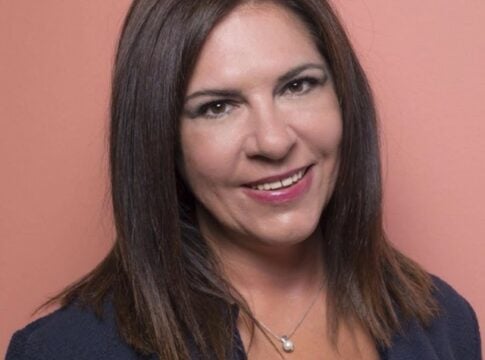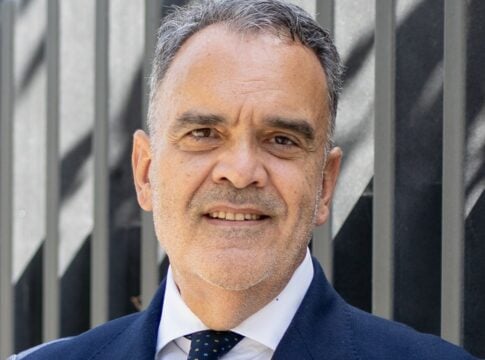by Irene Notias
Mrs. Irene Notias is the Managing Director of Prime Petroleum Services, Inc.
On top of the current and upcoming 2020 environmental regulations, another storm has been brewing since 2008 that not many have time to observe or discuss. The financial environment and its institutions have seeped deep into the Bunker Industry. The financing of marine fuels (Credit) to meet their “fueling-up” (aka bunker or black gold) requirements has come across a few glitches. The shipping industry’s fuel buyers are finding it a little too hard to gain credit lines directly with fuel physical suppliers world-wide and with some trading firms the due diligence is just as tough.
It used to be that fuel sellers offered bunker prices basis verbal payment reputation referrals and the natural faith they had in the market’s intelligence sources (i.e.: references from brokers and traders). Hence, trust equated to cash and it bought fuel. This was before 2008.
Since then, every “air pocket like” fall that crude has suffered, as in 2008 and 2014, trust seemed to follow suit and gradually lost ground. The emphasis therefore switched from “word of mouth” to more tangible criteria and since 2015, it has taken a whole lot of trust to fuel up a ship and a whole lot of due dilligence.
Just like you buy gas for your car, shipping companies buy fuel for their vessels. Only the procedure to buy fuel has become less simple and more stressful than buying gas for one’s car.
For cars, you pay cash at the station or by credit card. For fuel you pay by credit (15, 21, 30, 45, 60, 90 days) or cash in advance. For years, as long as you paid within agreed terms steadily, you enjoyed credit from the Seller (whether it was the actual supplier or a trader – re-seller) and your shipping business stayed afloat.
Now this is threatened because most fuel sellers who supply the vessels are avoiding risk by not offering credit and instead offering prices basis cash in advance — more and more. But who and how does one buy $300,000 or $500,000 worth of fuel by cash in advance?
To buy fuel is time consuming and requires knowledge about crude oil futures because you are actually buying a commodity since the price factor is based on crude paper. Fuel oil, the residual from crude refinery, for a very long time like gasoline price, variates according to the movements of crude oil futures (from the derivative or “paper” market).
In an article entitled “Managing marine fuels purchases in 2012: noting the changes/difficulties after the crisis & learning some buying tips for optimal savings” there are statements that still apply today.
“The bunker industry is a world of its own. Remarkably complex…the crude market has been rising and falling on a daily basis…in the day it can change in any direction… the Baltimore’s free newsletter MONEY MORNING, back in 2012 stated “We are on the verge of another financial crisis even bigger than the real estate collapse. This time, it’s being driven by oil prices. It’s not a supply/demand problem, nor a geopolitical one. Rather, the crisis stems from the rising inability to determine crude oil’s genuine value. A new round of speculation is growing, manipulating the energy markets. When no one can figure out how much oil prices should really be, they rise artificially… leading to catastrophic fallout. And that fallout won’t just affect energy investors or oil barons. It will affect you. Let’s face it: Oil prices touch everything. The gas you buy… the products you use… the food you eat… in some way or another oil is involved in all facets of life. Even if you don’t invest at all, this crisis will almost certainly have a major impact on you and your family.”
As predicted, the crude levels did fall sharply low in November 2014. Crude fell around $80 per barrel since the summer months. The impact on the bunker industry, the shipping industry and the world-wide economy had been huge, taking down many companies and banks. Therefore, lost cash, lost jobs – lost consumers – lost faith and trust. And most importantly directly affected credit lines. Lost credit.
It was like musical chairs. The music stopped playing and there was one seat less and someone fell flat on the floor or was left out. Prices instantly lower, were an advantage for end user but disadvantage for those who had bought higher and could not retrieve the losses. This caused a chain reaction of non payment and many suppliers did not to get paid with a result Shipowners had to double pay the value of bunkers. Why? In order to offer a competitive price, against the volatile crude futures levels, the Bunker Trading and Fuel Suppliers, hedge and or pledge the deals with the financial institutions (banks like ING or funds groups) and this means your deal is connected as well.
Ten years later, after the crisis of 2008, we still feel the impact. Fuel sellers – suppliers and re-sellers (traders) alike – can not afford to lose any more money. They lost billions of dollars in 2014 to the crash of crude derivatives and subsequently the forfeited sales contracts and are more careful who they offer credit to.
Today, lack of credit lines are a reflection of lack of trust and are shaping new habits and influencing new buying methods. It’s been said, it does not take a rocket scientist to buy or sell bunkers but ever since the “world wide financial crisis”, it does take some experience, reliable contacts and intelligent decision making.
Most bunker buyers are price conscious and book the lowest price without it mattering who the credit is from. Owners are too busy with various more urgent management level decision making and so they have to overlook these time bombs waiting to happen.
Payment performances must be sustainable. They must remain currently and consistently within the agreed terms and if they are not, and you are an infrequent buyer, you will not get credit from a reliable and strong trader. Recently many sellers of fuel both traders and suppliers have declined and or froze their customers credit lines due to delayed payments or breech of contract, or non-submittal of current audited financial statements like the Income Statement and Balance Sheet.
As cash flow got tighter, earning credit lines got tighter. So if you have money you will get bunkers – if you don’t, it’s extremely difficult to get bunkers for your vessels – just like the banks stopped giving money to ship owners who don’t have money. Of course, and thank goodness, there are companies (resellers) who will finance the bunkers at a reasonable financing cost.
In order to obtain credit nowadays, you must provide your bank and trade references, audited financial statements and/or have a reputable broker that is trusted by vendors to establish one for you based on his experience with your payment performance which means you must work and fix your bunker purchases via the broker for a long while so that there can be a steady record of your performance and trust to be established. A punctual payment reputation has proven to be as relevant as a healthy cash flow.
There are rewards for being punctual and direct with the source. As the vendor needs his cash flow to do more business, he will remain faithful to his loyal customers. Sustaining a payment performance identity is integral to securing future credit lines. And if you don’t use those credit lines, by the way, they soon expire and can’t be re-established easily due to supplier reluctance to offer credit during crisis periods since risks of further cash losses are higher.
Transparency, consistency and loyalty are playing huge role to build the trust which will sustain the bunker sellers interest to finance the bunkers.
So, ethics and buying power go hand in hand and play a huge role. Bunker traders and suppliers are not interested to offer credit easily at least not without the necessary banker requirement criteria. And where the consumer was once king enjoying buying power, that power has shifted to the other side. The conclusion is that the consumer has lost his buying edge and the issue is to learn to earn the vendor’s trust before his needs can be met.














